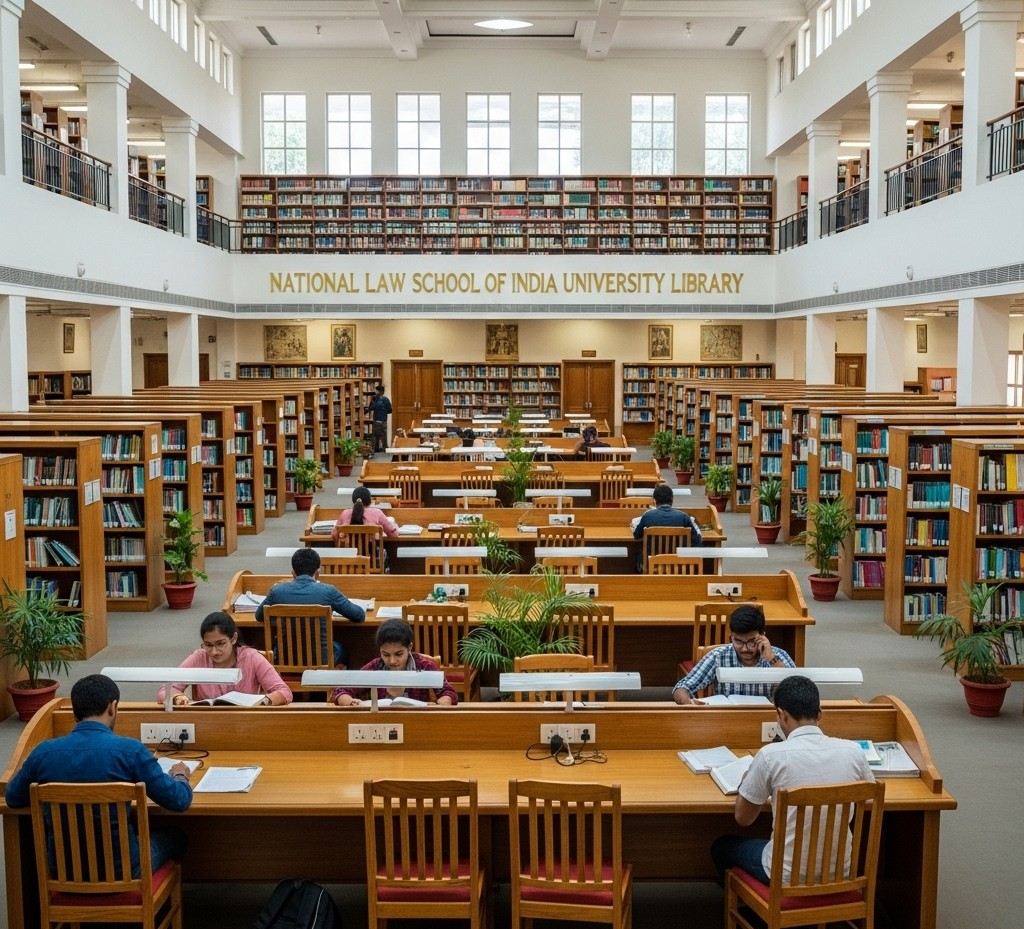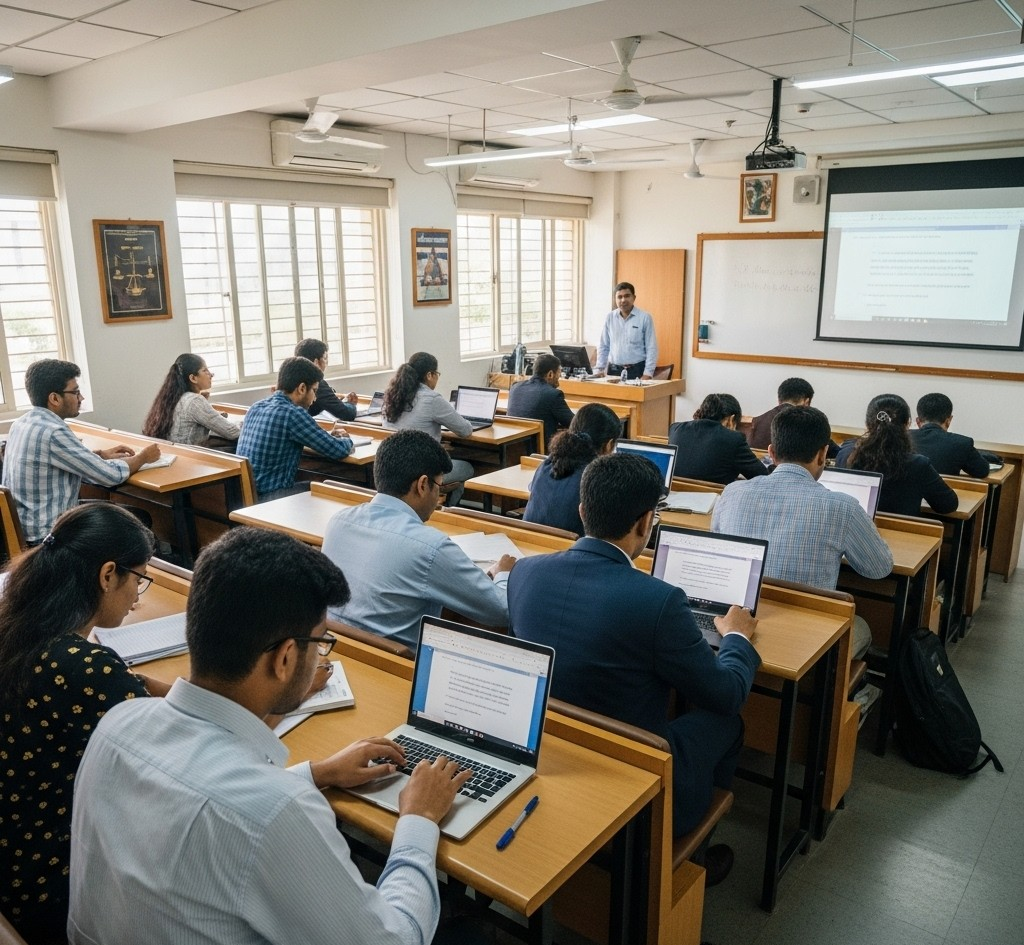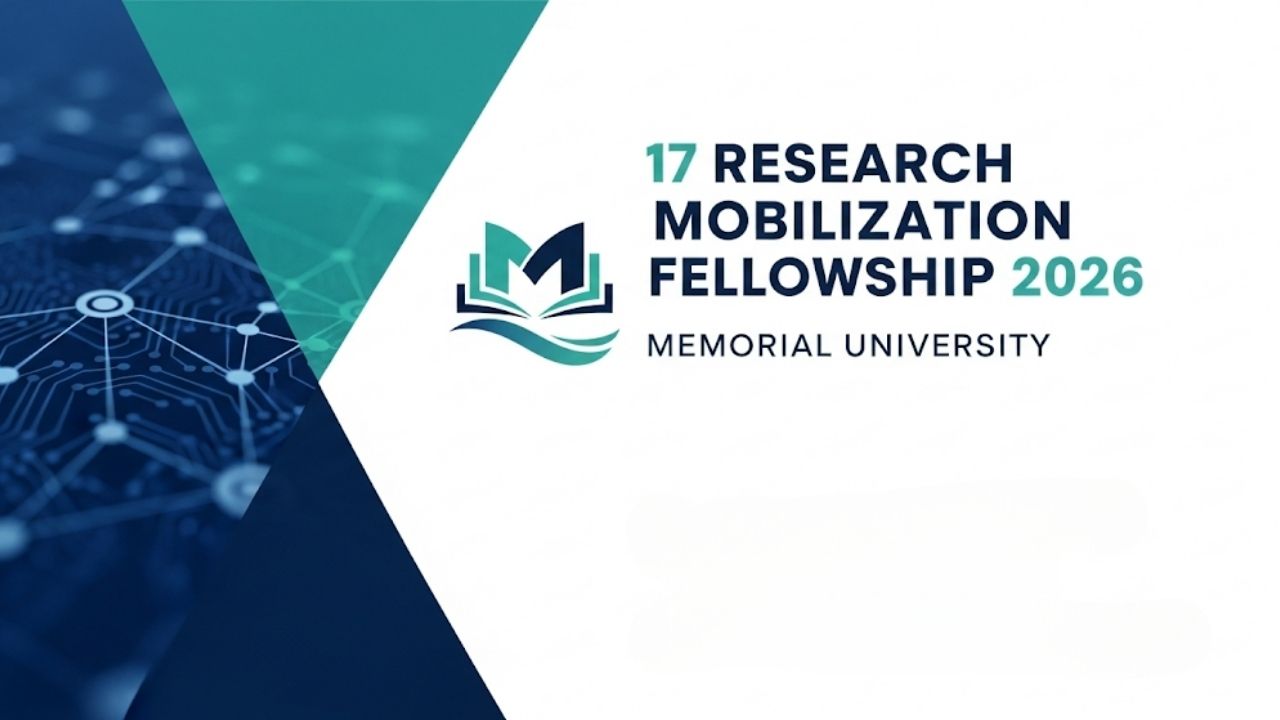Are you an ambitious academic or a driven professional with a passion for research and a desire to make a real impact on law and public policy? Then the NLSIU Research Fellowships 2026 might just be the perfect next step for you. In my experience advising students, the key to unlocking these prestigious opportunities lies in understanding the entire landscape—not just the application form. This guide is designed to empower you with comprehensive, actionable, and encouraging information to help you successfully navigate the application process and prepare a standout submission. We’ll demystify the different fellowship types, break down the requirements, and share expert insights to help you craft a truly compelling application.

The journey to an NLSIU Research Fellowship is a marathon, not a sprint. It requires dedication, a clear vision for your research, and a meticulously prepared application. The most successful applicants are those who see this not just as a job but as a chance to grow, learn, and contribute to the vibrant world of legal scholarship. So, take a deep breath, start your preparation, and get ready to embark on this exciting academic adventure.
Exploring the NLSIU Research Fellowships Program
The National Law School of India University (NLSIU) is a leader in legal education and research in India. Their research fellowships program, which has expanded since the Academic Year 2025-26, is a cornerstone of the university’s commitment to creating original knowledge and cultivating a robust research community. The program aligns with NLSIU’s “Grand Challenges Model” of research, which focuses on five key areas: Climate Justice; Labour and Work; State Capacity and Reform; Law and Technology; and Access to Justice and Legal Reform. Understanding these areas is critical, as they form the intellectual backbone of the research conducted at the university.
NLSIU offers several types of fellowships, each designed for researchers at different career stages. Knowing which one is right for you is the first and most important step.
- Graduate Research Fellowships: These fellowships are for exceptional young scholars, providing them with the support to pursue research and writing in areas related to law, social sciences, public policy, or allied disciplines.
- NLSIU Doctoral Fellowships: These fellowships are specifically for full-time Ph.D. scholars enrolled at NLSIU. They provide crucial financial support for a maximum period of three years.
- NLSIU Postdoctoral Fellowships: For those who have already completed their Ph.D., these fellowships offer up to two years of support to develop scholarly research toward publication.
- University Research Fellowships: These are typically for senior researchers with a recognized Ph.D. and a significant publication record. They are often by invitation or through an open application process for a duration of three months to two years.
Decoding the Eligibility and Application Process
Applying for an NLSIU Research Fellowship requires a careful and meticulous approach. While the specific requirements vary slightly for each fellowship type, there are some common threads you’ll need to follow. The process is highly competitive, so attention to detail is paramount.
A. Meeting the Eligibility Criteria
For the Doctoral Fellowships, candidates must have a bachelor’s or master’s degree in law or a related field, with a minimum percentage of marks as specified by the university. According to NLSIU’s Ph.D. (Law) page, this can include a five-year B.A., LL.B., a three-year LL.B., or an LL.M. degree, all with a minimum of 55% marks in aggregate. For other fellowships, a graduate degree in law or a postgraduate degree in social sciences, public policy, and/or allied disciplines is generally required.

B. The Core Components of Your Application
The application process is more than just filling out a form; it’s about presenting a cohesive and compelling case for yourself. You will need to submit a few key documents:
- Application Form: The official application is typically submitted via a Google form, as noted in the official
Call for Applicationspage. - Research Proposal: This is arguably the most critical part of your application. The university mandates that it must be an original work, prepared without any external or AI-assisted help. For Ph.D. applications, the proposal must be about 6-8 pages long and should clearly outline your research problem, specific research questions, and demonstrate a thorough understanding of the relevant literature.
- Curriculum Vitae (CV)/Resume: Your CV should be up-to-date and tailored to highlight your academic and professional experience relevant to the fellowship.
- Statement of Purpose (SoP): This document is your chance to tell your story. Explain why you are passionate about your chosen research topic, how your background has prepared you for this fellowship, and what you hope to achieve.
- Writing Sample: A writing sample, such as an academic paper or a published article, showcases your research and writing abilities. Some calls for applications, like the one for a Research Associate position, specify a word count (e.g., 800-1000 words).
Crafting a Standout Application: Expert Tips and Insights
I’ve seen many successful applicants who all share a few common traits. They are not just smart; they are strategic. They approach the application not as a chore but as an opportunity to showcase their intellectual curiosity and commitment. Here’s how you can do the same.
- Start Early and Do Your Homework: The application deadlines are firm. The rolling application process for fellowships in the Academic Year 2025–26 means you should apply as soon as you are ready, but be aware of specific round deadlines, like the one for September 15, 2025. Thoroughly read the official website and all the application guidelines. The more you know, the better prepared you’ll be.
- Align Your Research with NLSIU’s Focus: Remember the five “grand challenges” I mentioned earlier? Your research proposal will be much stronger if it clearly connects to one or more of these areas. Show the selection committee that you are not just a good researcher, but that you are the right researcher for NLSIU.
- Refine Your Research Proposal: Your proposal is your intellectual calling card. It should be meticulously crafted. Define a narrow, focused research question. Don’t try to solve all the world’s problems at once. Be specific about your methodology and show that you’ve done the preliminary work of a literature review. This demonstrates authoritativeness and expertise.
- Seek Feedback: Don’t work in a vacuum. Share your research proposal and statement of purpose with mentors, professors, or even peers. A fresh set of eyes can catch typos, unclear arguments, or areas that could be strengthened.
- Highlight Your Unique Experience: Your background is what makes you, you. Whether you’ve worked as a judicial clerk, an advocate, or a policy researcher, as some of the alumni testimonials show, weave that experience into your narrative. Explain how your practical experience has informed your theoretical interests.
Financial Aid, Campus Life, and Other Fellowships
Securing a fellowship often comes with significant financial benefits. The NLSIU Research Fellowships offer competitive stipends. For example, Graduate Research Fellows can expect to receive between Rs. 55,000 to Rs. 65,000 per month. Doctoral Fellows receive Rs. 50,000 per month for a maximum of three years, while Postdoctoral Fellows are compensated between Rs. 1,00,000 and Rs. 1,50,000 per month. These figures reflect the university’s commitment to supporting its researchers.
Beyond the financial aspect, a fellowship at NLSIU offers a rich intellectual environment. You get access to an extensive library and digital resources, and the opportunity to participate in a wide range of workshops and seminars. It’s a chance to immerse yourself in an academic community and collaborate with leading minds in the field.

Your Definitive Guide to the Chevening Clore Leadership Fellowship 2026 Application Process
Your Dream to Study in the USA: A Guide to the Fulbright Foreign Student Program 2026–2027
FAQs
Q1:What are the different types of NLSIU Research Fellowships?
NLSIU offers Graduate Research Fellowships, NLSIU Doctoral Fellowships, NLSIU Postdoctoral Fellowships, and University Research Fellowships, each tailored to different stages of a researcher’s career.
Q2:How much is the stipend for an NLSIU Research Fellowship?
The stipend varies by fellowship type. Graduate Research Fellows receive between Rs. 55,000 and Rs. 65,000 per month, while Doctoral Fellows receive Rs. 50,000 per month. Postdoctoral Fellows are compensated between Rs. 1,00,000 and Rs. 1,50,000 per month.
Q3:What is the deadline for the NLSIU Research Fellowships 2026 application?
Applications are accepted on a rolling basis, but the deadline for the first round of review is September 15, 2025, at 5 PM IST.










